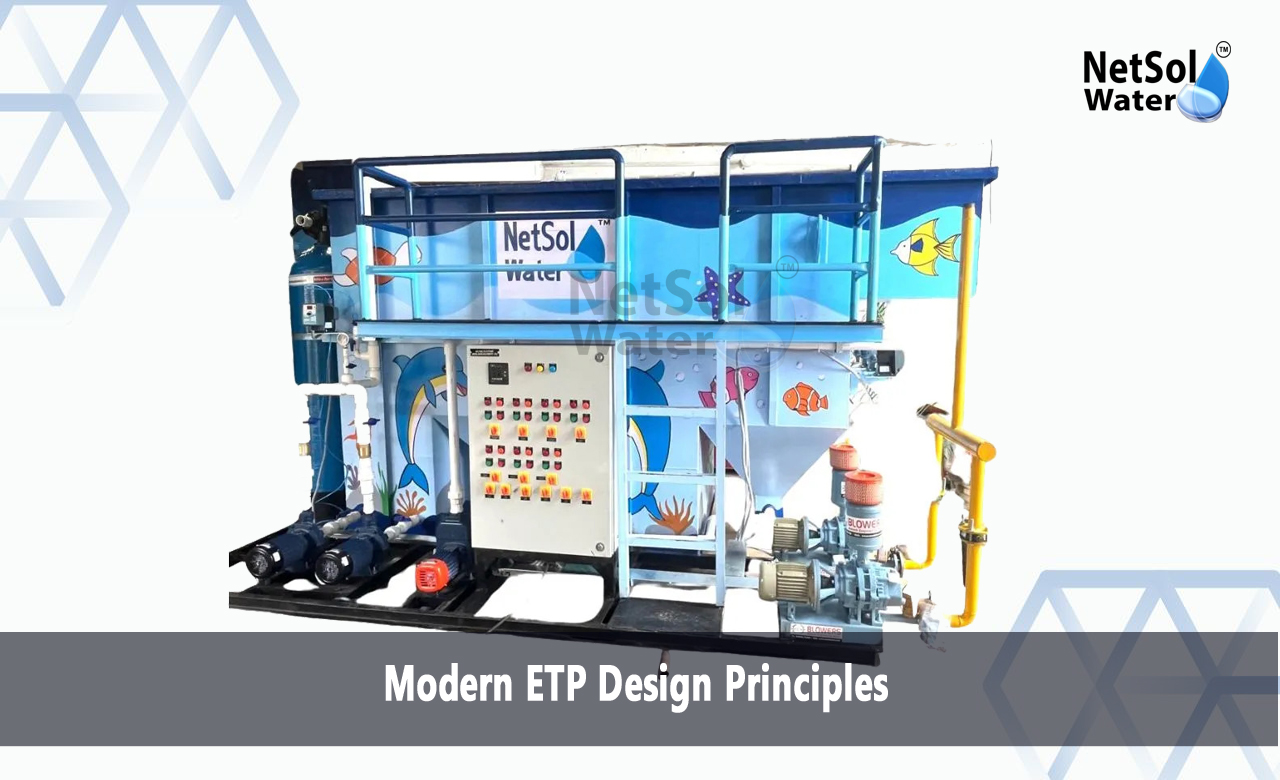What is the Principles of Modern ETP Design?
Water treatment stands as one of the most important processes in industrial operations today. Modern Effluent Treatment Plants (ETPs) have transformed from basic filtering systems into sophisticated treatment facilities that protect our environment. These advanced systems now integrate smart technologies with sustainable practices to meet strict environmental standards while maintaining operational efficiency. The rising need for clean water drives industries to adopt better treatment methods. Modern ETP design focuses on water quality improvement through advanced processing techniques. This advancement helps industries reuse water effectively which benefits their bottom line. The latest design principles also emphasize environmental protection alongside operational excellence.
The Foundation of Modern ETP Design
Modern ETP design starts with understanding the complex nature of industrial wastewater treatment. Engineers must consider various factors when designing these systems. The treatment process requires careful planning to handle different types of pollutants effectively.
Advanced Pre-treatment Systems: Pre-treatment sets the foundation for effective wastewater processing. Modern systems use automated screening mechanisms that remove large particles. These systems incorporate oil skimmers that separate oils from water efficiently. The pre-treatment phase also balances pH levels automatically which creates optimal conditions for subsequent treatment stages.
Smart Monitoring Systems: Technology integration makes modern ETPs more efficient. Sensors throughout the system track water quality parameters continuously. These devices measure multiple factors including pH oxygen levels temperature turbidity. The collected data helps operators adjust treatment processes in real-time. This monitoring ensures consistent water quality output while preventing system issues before they become problems.
Modular Design Approach: Modern ETPs embrace modular construction principles. This approach allows for easy system expansion as treatment needs grow. Modular units can be added or modified without disrupting existing operations. The design also makes maintenance simpler because individual sections can be serviced separately. This flexibility helps industries adapt to changing regulatory requirements efficiently.
Biological Treatment Innovations
Biological treatment represents a critical component in modern ETP design. This process uses natural biological processes to clean wastewater effectively. Recent innovations have made biological treatment more efficient.
Advanced Aeration Systems: Modern aeration systems maximize oxygen transfer in biological treatment. New diffuser designs create smaller bubbles which increase oxygen dissolution. Variable speed blowers adjust airflow based on demand automatically. This optimization reduces energy consumption while maintaining treatment effectiveness.
Enhanced Biological Processes: Modern designs incorporate specialized bacterial cultures for specific pollutants. These targeted treatments break down complex industrial waste more effectively. The systems maintain optimal conditions for bacterial growth consistently. This approach ensures better treatment results with lower chemical usage.
Membrane Bioreactor Integration
Membrane bioreactors combine biological treatment with filtration efficiently. This technology produces higher quality treated water consistently. The compact design requires less space than traditional systems. MBR systems also allow for better process control through automation.
Sustainable Operation Features
Modern ETP design emphasizes environmental sustainability alongside treatment efficiency. This focus creates systems that work better while using fewer resources.
Energy Recovery Systems
Modern designs incorporate energy recovery features throughout the process. Heat exchangers capture thermal energy from treated water effectively. Biogas generation systems convert waste sludge into usable energy. These features significantly reduce the overall energy footprint of treatment operations.
Water Reuse Integration
Advanced treatment systems make water reuse practical industrial operations. Multi-stage filtration produces water that meets reuse standards consistently. The design includes dedicated storage systems for treated water. This integration helps industries reduce their freshwater consumption substantially.
Resource Conservation Design
Modern ETPs minimize resource usage through smart design choices. Chemical dosing systems adjust automatically based on water quality. Sludge handling equipment reduces waste volume effectively. These features create more sustainable treatment operations long-term.
Modern ETP design continues to evolve with new technologies and approaches.
Our team understands these advanced design principles thoroughly. We can help you create an efficient sustainable treatment system for your facility. Contact us today to discuss your specific ETP needs. Let us show you how modern design principles can transform your water treatment operations.
Contact Netsol Water at:
Phone: +91-965-060-8473, Email: enquiry@netsolwater.com



